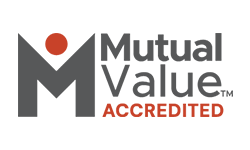Deciding whether to buy a property or continue renting is rarely a simple choice. Housing affordability, your lifestyle and investment goals are all factors to consider when weighing up the advantages and disadvantages of buying or renting.
Some points to consider during the buying vs. renting debate include:
Renting
Advantages
- Having the freedom to experience living in different areas.
- You may be able to live in an area where you would struggle to buy a comparable property.
- If you have any issues with the property, location, parking or the neighbours, you can move at the end of your lease.
- Depending on the amount of rent you pay, you may be able accrue savings that can be invested in other assets such as shares.
- Renting gives you the opportunity to diversify your investments which minimises risk, rather than being dependent on a single property investment as your only asset.
- Your landlord (or managing agent) is responsible for resolving property maintenance issues. How well this is handled depends on your landlord (or managing agent), but you can move at the end of your lease if you are unhappy.
Disadvantages
- Lack of stability is the main disadvantage as there’s the possibility that your landlord may give you notice of eviction because they have other plans for the property, which can be especially distressing if you love your rented home.
- If you move frequently, you incur removalist fees, reconnection fees and possibly the cost of new furnishings each time you move.
- Rental amounts rarely decrease, so you are likely to pay more each time the rent is reviewed or when moving to a new rental property.
- Renting a property is an ongoing cost that will continue into retirement but finding the rent money during retirement could be problematic.
- Lease agreements can restrict you from decorating or furnishing the property as you would like.
- Regular inspections by your real estate agent can be inconvenient.
- Pets may not be allowed.
- There’s lots of competition for good rental properties in desirable areas.
Buying
Advantages
- If you are looking for more stability, especially if you are planning to have a family, owning your own home may be more suitable for you. There’s no risk of being evicted by a landlord, but your home can become at risk if you default on your home loan repayments.
- Carefully considered improvements that you make to your own home can increase the value of your property, depending on real estate market conditions.
- You will pay off the home loan over the agreed term (usually 30 years), which may reduce your future living expenses considerably.
- Owning your own home enables you to release equity from the property to fund an investment, improvements to your home, a holiday or free up funds for retirement. Depending on the type of loan, you can either redraw funds from your home loan or, if you are aged over 60 and concerned about retirement, you can consider a ‘reverse mortgage’ home loan.
- You can decorate your own home to suit your style. However, if you purchase a heritage-listed building or an apartment or townhouse that has body corporate/Strata regulations, there may be restrictions such as the paint colour of external walls.
Disadvantages
- Your monthly mortgage repayments, depending on the property, are likely to be higher than monthly rent payments. It could therefore be difficult to accrue savings for other investments such as shares, which means that your main investment is your property.
- You are responsible for resolving maintenance issues or liaising with Strata Management to resolve, depending on the property type.
- If your neighbours are noisy or traffic noise increases due to a change in road planning, it can be difficult to move.
- Buying and selling property is expensive. The interest payments and fees that you will pay during the term of your loan could be substantial, so you need to understand the financial commitment that buying a home involves.
- The pressure of keeping up with your home loan repayments, depending on your circumstances.
- While home ownership is a long-term investment that is likely to increase in value, there is always the possibility that your property could decrease in value depending on the economy and the future real estate market.
Deciding whether to rent or purchase property is a complex decision. Renting is by no means a lesser housing choice, as it can enable you to invest in other assets such as shares, and there’s less long-term financial commitment. However, you may yearn for the Australian dream of owning your own property when the time is right for you. Ultimately, the decision depends on your own personal and financial circumstances.
Thinking about buying your own home?
Navigating the jargon and the buying process can feel overwhelming, but we're here to support you on your home ownership journey.
You can apply online for a home loan or, if you are still unsure if you are ready to make the move, book a free Financial Health Check with one of our Mobile Lenders. It’s an opportunity to review your finances, which could help you decide whether to continue renting or buy your own home. Life is busy, which is why our friendly Mobile Lenders can meet you at a time and place that’s convenient for you.
At G&C Mutual Bank, we have over 60 years’ experience of looking after our members’ financial needs. We’re a different kind of bank because each of our members is an owner with a say in our future. We put our members first and, unlike publicly listed banks, we return our profits to our members via better rates and products that offer flexibility. We’re a bank for you; a bank you can trust. Contact us today to find out more about the G&C Mutual Bank difference.




